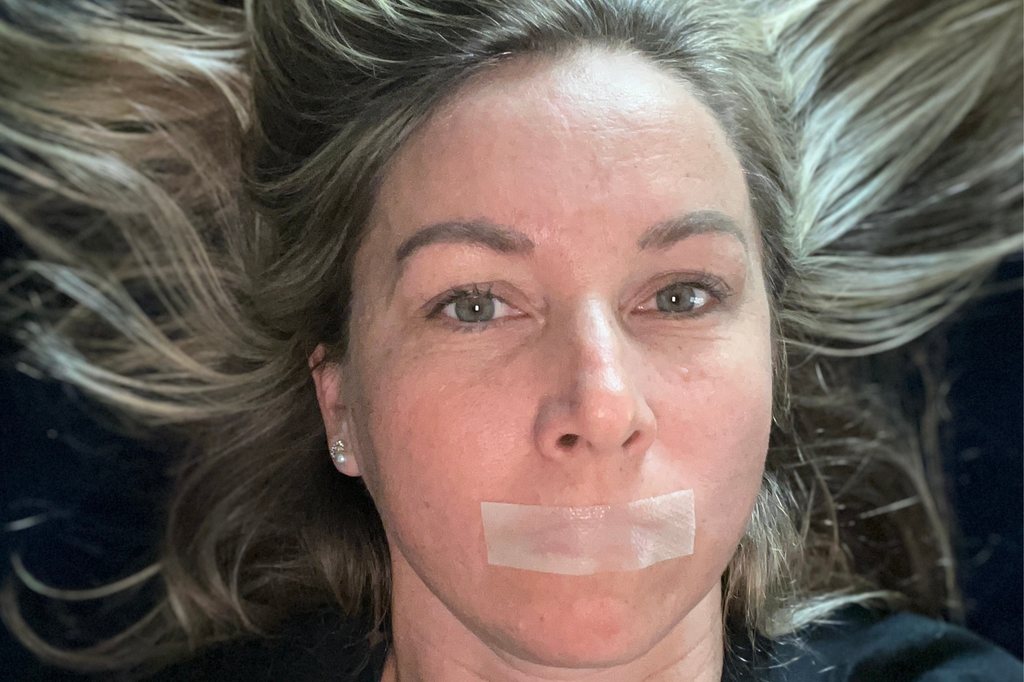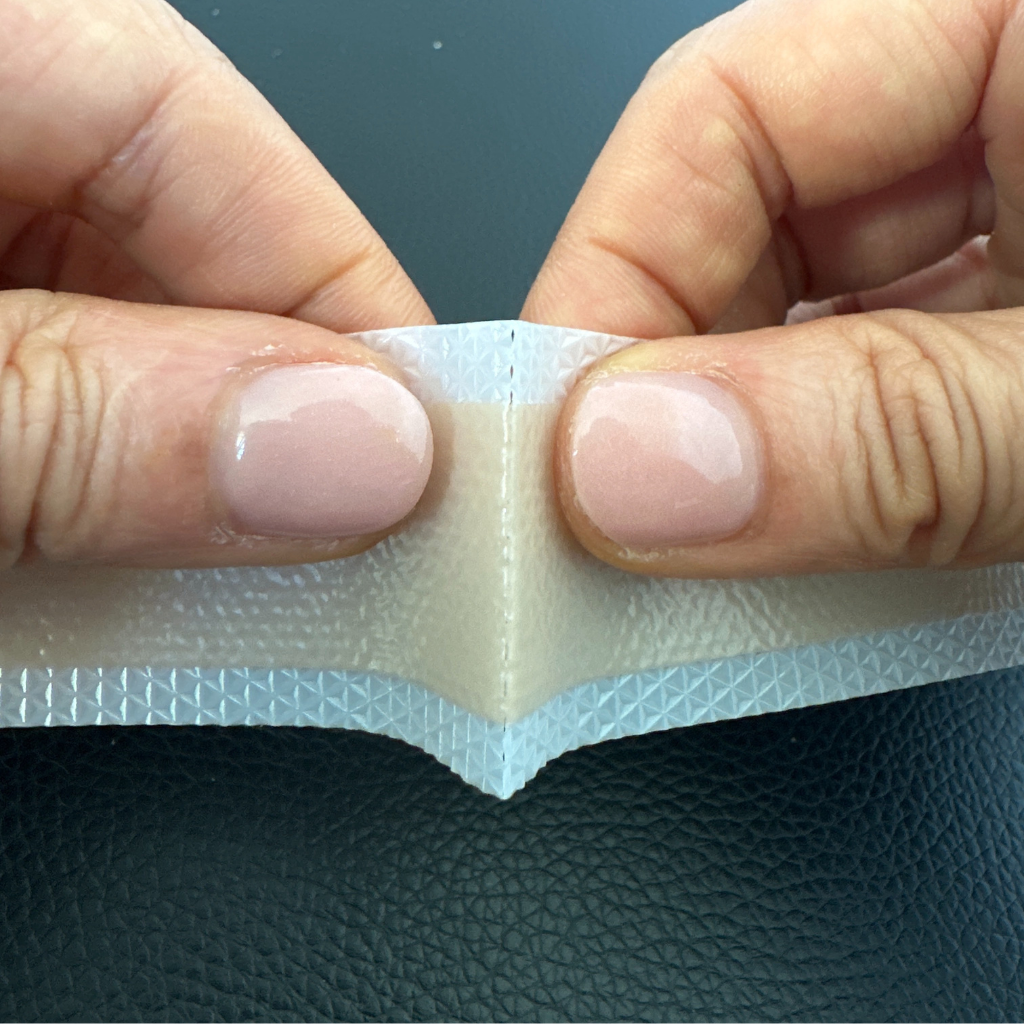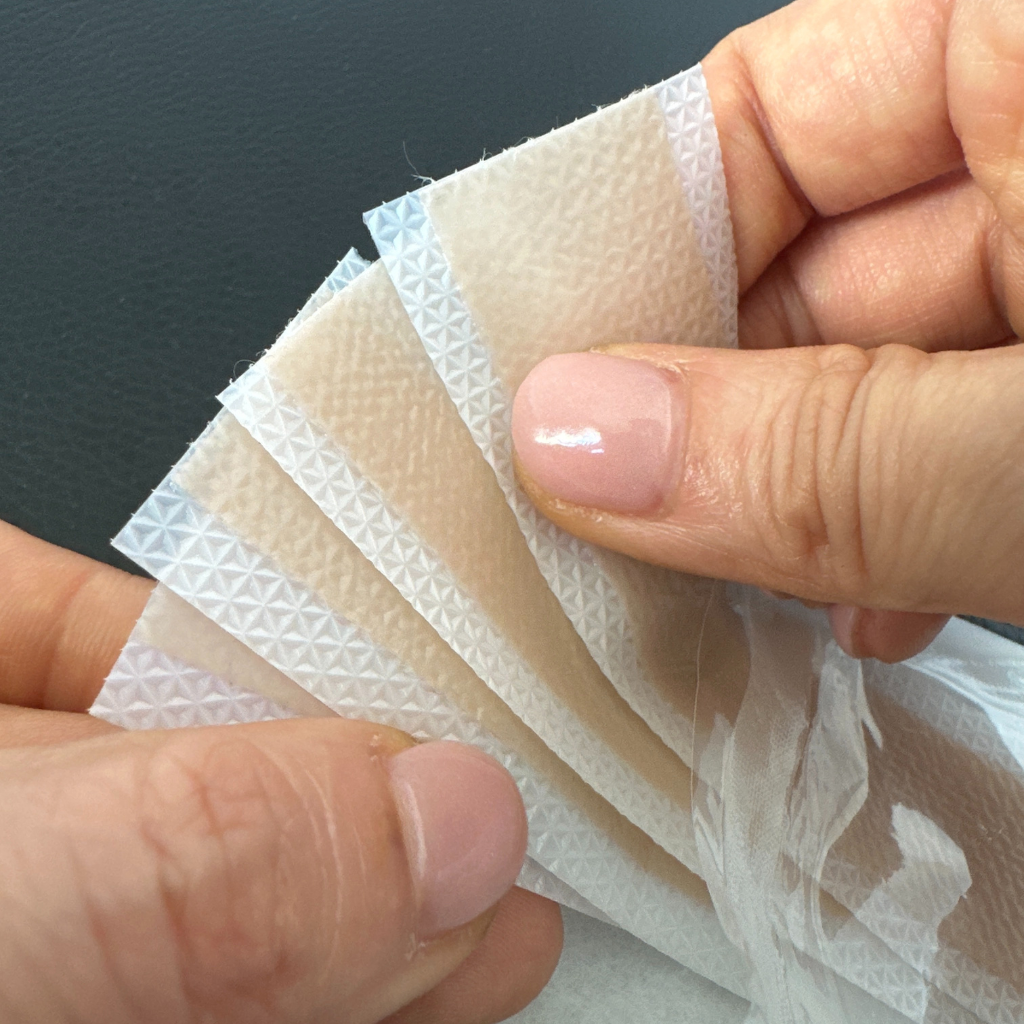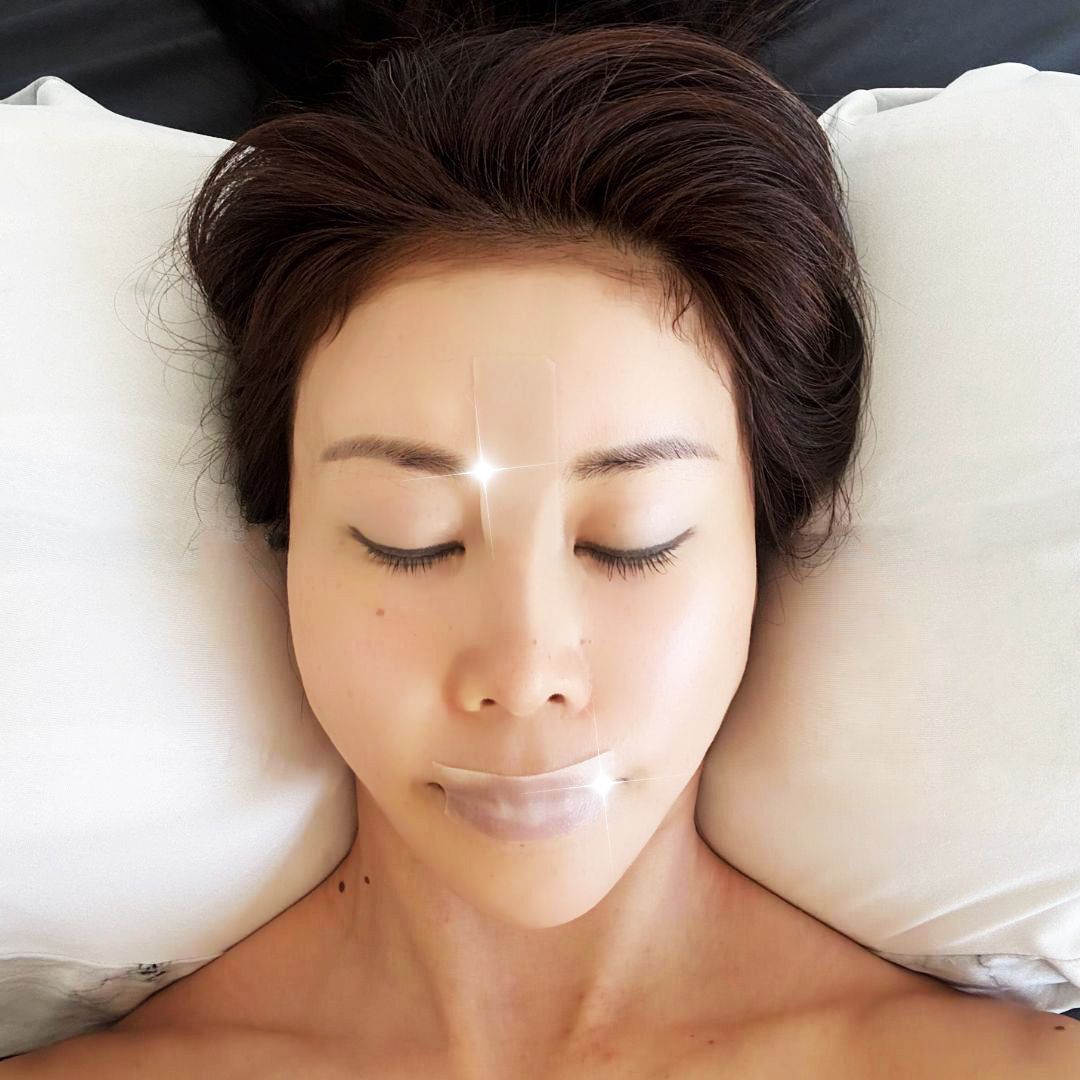
Snoring is more than a simple nightly annoyance. For many persons, it is significant, denoting deeper health problems or other difficulties. It can even mean poor sleep, not only for the snorer but also for their partner. Mouth taping comes in as a clever fix for this issue. It remedies those who have turned to everything from specialized pillows and a host of sleep aids without finding relief and hope.
But is this method really all it's hyped up to be, and can it indeed lessen the intrusive noise of snoring? Getting a bird's eye view of what this product promises to do with snoring and ensuring a good night's sleep would answer this. This article delves into the very nature of this adhesive fix to understand and determine if sealing one’s lips with tape reduces the number of decibels accrued to the snoring process—hence offering a quieter, more peaceful experience while in sleep.
What is Mouth Taping, and How Does It Work to Reduce Snoring?
Mouth taping is a simple yet effective approach to address snoring, promoting nasal breathing over mouth breathing during sleep. The method involves securely placing a specially designed tape over the lips to keep the mouth closed throughout the night. This encourages the sleeper to breathe through their nose, which can significantly reduce and sometimes eliminate the snoring sounds that often emanate from mouth breathing.
The Mechanism Behind Mouth Taping
Some may wonder, how can taping the mouth shut stop snoring? The answer is not in the literal opening or closing of the mouth. The explanation behind its effectiveness is based on the anatomy and physiology of breathing. The nasal passages, which filter, warm, and humidify air, are bypassed when breathing and exhaling using the mouth. The throat's soft tissues are directly exposed when air is drawn through the mouth, causing them to vibrate and emit the distinctive snoring sound.
Mouth taping facilitates nasal breathing, which helps in:
- Controlled and smooth airflow in the lungs: Nasal breathing lessens turbulence and the chance of tissue vibration in the throat.
- Improved air filtration: The nasal passages filter out particles and allergens that may cause congestion and snoring.
- Maintenance of ideal humidity: Breathing through the nose helps keep moisture in the airways, which lessens the dryness that can make snoring worse.
Types of Tape Used for Mouth Taping
Choosing the suitable tape is paramount when addressing snoring through mouth taping. The market has options tailored to ensure both efficacy and safety at night. Among these, mouth strips, like Koko Face Yoga’s Sleep Tape™, have gained popularity for their specific design and user-friendly attributes – medical-grade adhesive materials that are gentle on the skin, ensuring minimal risk of irritation while providing a secure hold throughout the night.
- Medical-Grade Adhesive Tape: A specially designed adhesive tape for the skin, it sticks without falling off throughout the night and is gentle enough not to cause skin irritation.
- Anti-snoring Mouth Tape: There are tapes specifically created to address snoring. These tapes are often more comfortable and easier to remove than their medical-grade counterparts. They are designed with the user's comfort in mind, ensuring that the tape does not only perform its function but also provides a pleasant experience.
Mouth Taping vs Other Snoring Treatments
Mouth tape distinguishes itself through its simplicity and affordability. The market has some mouth-taping options, which have been highly recommended for efficacy and safety throughout the night. It is for such a specific design and user-friendly attribute that mouth strips for snoring, like the Sleep Tape™ of Koko Face Yoga, have gained immense popularity for their specialty in medical-grade adhesive materials that are gentle to the skin and have low risks of irritating, yet strong enough to hold the mouth securely throughout the night.
- Simplicity: Most people will find mouth taping a simple technique to do. There is no complication concerning the setting or fitting; hence, most people usually find it preferable when looking for instant relief without incurring trouble.
- Cost-Effectiveness: Compared to most solutions for snoring, mouth tape is affordable, accessible, and an appealing first step to most snoring remedies that require a bit more commitment from the wallet.
- Non-Invasive Nature: Mouth tape provides non-invasive methods, whereas CPAP machines are cumbersome and require wearing during sleep. Such ways are very attractive to a person who seeks non-intrusive alternatives to the many cumbersome snoring remedies.
Potential Benefits of Mouth Taping for Snoring

The benefits of mouth taping extend beyond just reducing snoring. Users report many improvements, from better sleep quality to enhanced oral health. Nasal breathing and having the mouth closed lead to these reported benefits:
- A more serene sleeping environment due to reduced snoring
- Reduced mouth dryness and improved oral hygiene
- Quality sleep and having more restful nights
- Maintained facial moisture
- Decreased jowl on the face and skin sagging
Risks and Potential Side Effects of Mouth Taping

Despite its simplicity, mouth taping is not without risks. Shutting your mouth to stop snoring might raise concerns about safety and comfort. While it has positive results, it's also important to acknowledge not everyone may find it effective. Results will still depend on the specific causes of snoring. Using mouth tapes can be a complementary remedy for those with sleep apnea but should not completely replace medical treatment or advice. Koko Hayashi, a renowned face yoga expert and owner of Koko Face Yoga, emphasizes, "While mouth tape offers a simple and effective solution for some snorers, addressing the root causes of snoring with a healthcare professional is essential."
Some potential side effects to consider are:
- Irritated skin or allergic reactions to the adhesive
- Discomfort or anxiety from having the mouth taped shut
- Breathing difficulties from blocked nasal passages
Watching out for these side effects is vital. It is advisable to stop using snore tape at the first sign of adverse reactions.
Who Should Avoid Mouth Taping
Despite its massive benefit, mouth taping is not for everyone, though snoring is one of people’s biggest problems. The following scenarios should be considered first:
- Individuals with nasal breathing issues, unclear nasal passages, or those who can’t breathe comfortably through their nose or have congestion or a deviated septum
- Those suffering from sleep apnea, COPD, or other breathing disorders
- Those who have sensitive skin or known allergies to adhesives
What to Do if Mouth Taping Doesn't Stop Snoring
For some, mouth taping might not provide the snoring relief they seek. While disheartening, it's important to remember that snoring can have different underlying causes. If snoring mouth tape doesn't work, try the following tips:
- Consider other lifestyle changes or treatments, such as weight loss, reducing alcohol consumption, or side-sleeping.
- Consult with a healthcare provider to explore the root causes of your snoring.
- Investigate alternative snoring solutions, like CPAP machines, mouthguards, or surgery for more severe cases.
When to See a Doctor About Snoring

While mouth tape for snoring offers a simple, DIY approach to managing snoring, it's not a substitute for professional medical advice. The signs and symptoms below are some clear signs to prompt a visit to the doctor or a healthcare professional to provide a comprehensive evaluation and recommend appropriate treatments, which may include mouth taping as part of a broader strategy.
- Snoring that's loud enough to disrupt your or your partner's sleep.
- Pauses in breathing, gasping, or choking sounds during sleep, which could indicate sleep apnea.
- Daytime sleepiness, morning headaches, or other signs of poor sleep quality.
Frequently Asked Questions
Is mouth taping safe? Yes, it's safe for most people when done correctly with the right type of tape and precautions. However, individuals with certain health conditions should avoid it.
Can regular tapes be used for mouth taping? No, using tapes specifically for the skin is advised to prevent irritation and other potential risks.
What if I have trouble breathing through my nose while mouth taping? Mouth taping must be stopped if it causes discomfort or difficulty in breathing. Consulting a healthcare provider when nasal passage issues are experienced is recommended.
Does mouth taping have any long-term side effects? No evidence of long-term side effects exists when using skin-safe tape, provided proper guidelines are followed.
Can mouth taping help with sleep apnea? While mouth taping can reduce snoring, it's not a treatment for sleep apnea. Professional evaluation and treatment are necessary for sleep apnea.
How often should I use mouth tape for snoring? Nightly use is fine as long as it remains comfortable and practical. However, monitoring for any adverse effects is essential.
Key Takeaways
Remedying snoring by using mouth tapes is both an intriguing and divisive method. It's a game-changer how a simple strip of tape leads to peaceful and quiet nights, restoring restful sleep. Yet, for others, it's a stopgap highlighting the need for more profound solutions.
As discussed in the article, key takeaways include:
- Mouth tape is a cost-effective, non-invasive method that promotes nasal breathing and reduces snoring.
- It's not for everyone, especially those with nasal breathing issues, sleep apnea, or skin sensitivities.
- Choosing the suitable tape and comfort testing are essential for safety and effectiveness.
- Consulting with a healthcare provider is crucial to address the underlying causes of snoring and to determine the best treatment plan.
Aiming for a quieter night doesn't end with using snore tape. It signifies a willingness to explore, experiment, and potentially transform one's sleep experience. This step, like any in health and wellness, should be an informed and considered one. Recognizing that the effectiveness of snoring mouth tape can vary widely among individuals is essential. What works for one individual may not work for another, underscoring the need for close monitoring, personal experimentation, and adaptation.

